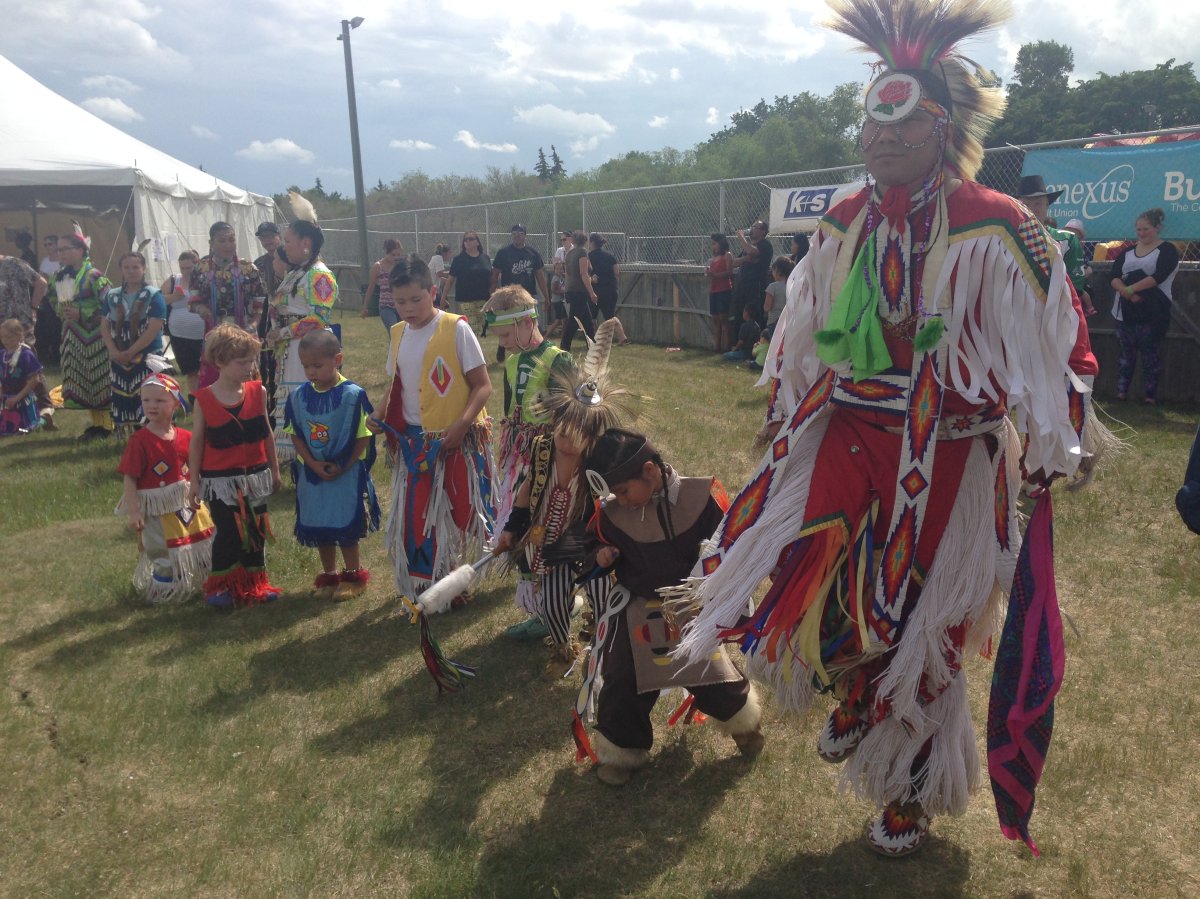TORONTO – From New Brunswick to British Columbia thousands of Canadians celebrated indigenous culture Sunday to mark National Aboriginal Day.

From coast-to-coast pow wows and marches were held to honour what Gov. General David Johnston called “an opportunity to recognize the rich cultural heritage of the First Nations, Inuit and Métis, as well as their significant contributions to this great country.”
In New Brunswick, Minister of Aboriginal Affairs Bernard Valcourt took part in festivities with the Madawaska Maliseet First Nation in his home province. The Assembly of First Nations hosted an arts festival and pow wow in Ottawa, while Montreal hosted a march through the city. In Winnipeg, a daylong celebration was held that included live art installations and food sampling. While in B.C., 44 events were held throughout the province Sunday to mark the occasion.
READ MORE: National Aboriginal Day in Edmonton more significant following Truth and Reconciliation
Prime Minister Stephen Harper released a statement Sunday urging all Canadians to learn about the country’s diverse indigenous groups that “have helped shape Canada’s past and will be vital for our future.”
However, whether it was in Ottawa or Vancouver, the day’s activities fell in the wake of the Truth and Reconciliation report that took an exhaustive look at the devastating effects of Canada’s church-run, government-funded residential school system, which operated for more than 120 years.
NDP Leader Tom Mulcair and Liberal Leader Justin Trudeau released statements in honour of the day, while also calling attention to the plight of the country’s aboriginal peoples.
“As was made all too clear in the recent findings of the Truth and Reconciliation Commission, it is time to act—without delay—to advance the process of reconciliation, and rebuild the relationship between Aboriginal and non-Aboriginal Canadians,” Trudeau said in a statement.
A summary of Truth and Reconciliation Commission report, released earlier in June, was the culmination of a six-year study that recorded emotional testimony from residential school survivors across Canada.
READ MORE: Canada’s aboriginal residential school system was ‘cultural genocide,’ report says
The report called the horrors suffered during the dark period of the country’s history nothing short of a “cultural genocide.” The TRC summary also made 94 recommendations to address the history of abuse and change the relationship between the federal government and Canada’s original inhabitants.
“The residential school experience is clearly one of the darkest most troubling chapters in our collective history,” said the commission’s chairman Justice Murray Sinclair.
In Edmonton, the weekend’s festivities began Saturday with a march for missing and murdered women and continued Sunday with celebrations in Churchill Square.
READ MORE: Up to 6,000 children died at Canada’s residential schools, report finds
Bernadette Iahtail, executive director of the Creating Hope Society, told Global News the TRC report is one step towards creating a bigger support system for aboriginal people.
“I truly believe that the Truth and Reconciliation really kind of set the motion to move things forward,” she said. “There’s been a big push, a big movement. I think aboriginal people are finally feeling that they’re being heard, that they’re being understood.”
*With files from Caley Ramsay and The Canadian Press.


Comments